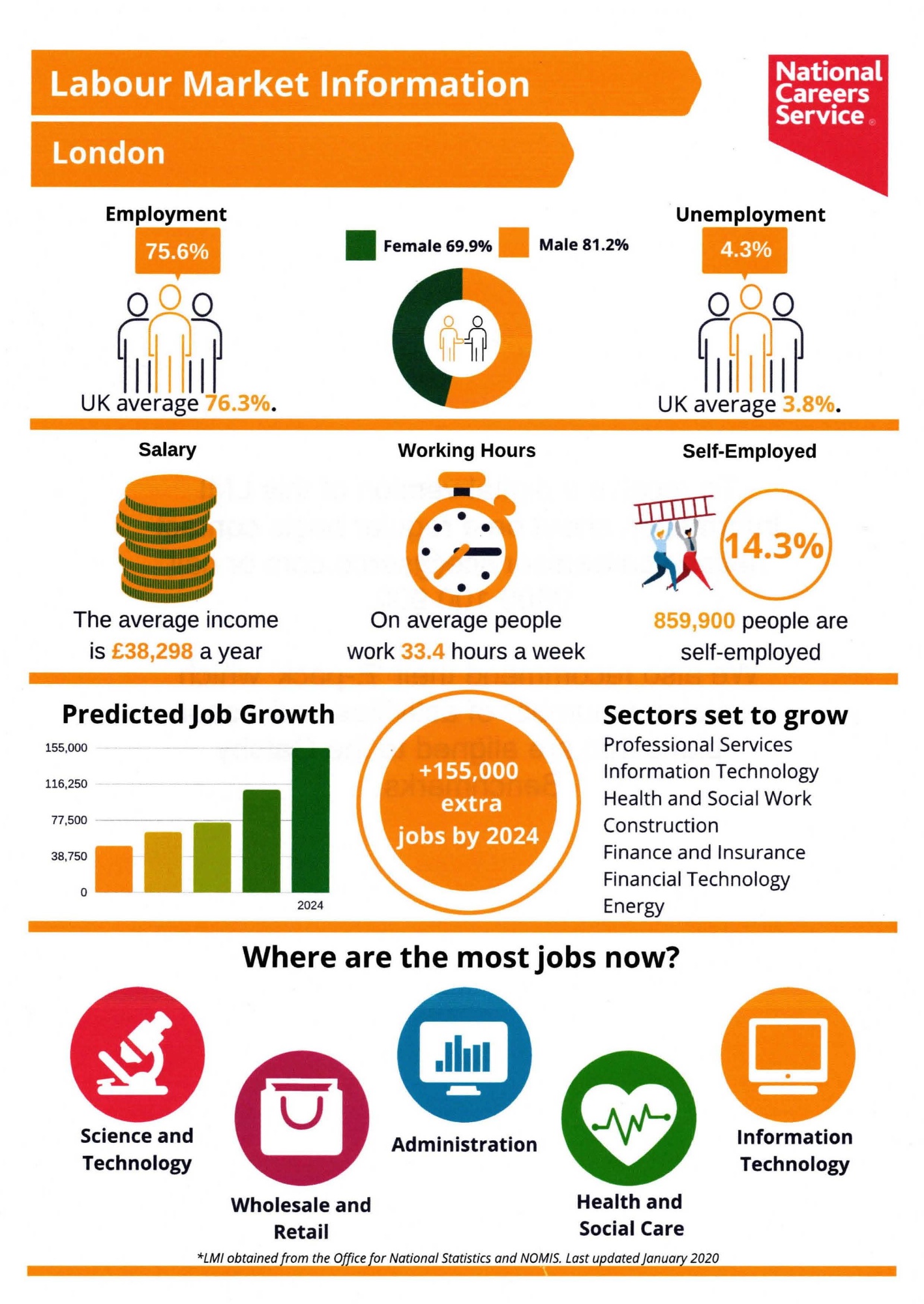Labour Market Information
Ways of working
The world of work has changed dramatically in recent years and continues to do so. As well as a range of different jobs and careers there are now many different ways of working. Examples include…
-
Flexi-time - working a set number of hours with variable start and finish times within an agreed range (e.g. 37.5 hours per week, starting between 08.00-10.00 and finishing between 16.00-18.00)
-
Temporary/fixed-term contracts - employers may take on more people in certain sectors (e.g. agriculture, tourism and retail) at busier times
-
Zero or low hours contracts - these involve a great deal of flexibility; workers on zero hours contracts don’t necessarily know how many hours they will work in a given week
-
Freelance and consultancy work - specialists are brought in to a business only when needed
-
Shift work - people who work in hospitals, hotels, call centres, factories, etc. often work shifts to enable out-of-hours/24-hour services and production
-
Part-time work - some people choose to only work part of a week, for example if they're also studying, but some jobs aren't available as full-time posts; others combine different part-time roles (see also portfolio careers)
-
Remote working - developments in digital technology mean many people work away from their employer’s location, often from home
-
Portfolio careers - some people have more than one interest or set of skills - rather than having one full-time job, they do several different part-time jobs at the same time which might include freelancing
-
Self employment - nearly two thirds of young people like the idea of running their own business; areas of work include construction, hair and beauty, finance, computing and catering
Croydon’s employment profile
“Croydon is a major economic centre in London and a primary retail, leisure and cultural destination for the south east. It is also a major contributor of labour and skills to the London economy and is recognised in the London Plan as an important strategic location for business activity and transport infrastructure.
Over the last decade Croydon’s economy has been hampered by an overdependence on retail, business services and public sector jobs and a surplus of lower grade office accommodation. The latest economic development strategies and regeneration plans recognise the need to focus on supporting local business, driving economic growth, and facilitating new business and inward investment.”
(Source : Croydon Observatory)

Useful links
- Borough profile - Croydon Local Strategic Partnership's 2018 borough profile
- Coast to Capital - how Croydon fits into the Coast to Capital programme (includes the Gatwick 360 strategic economic plan)
- London's LMI - infographic from the National Careers Service
- NOMIS - free access to the most detailed and up-to-date UK labour market statistics
- LMI For All - combines government information with vacancy data from various sources
- Skills Match - features labour market information (LMI) for the whole London region
- icould - accessible labour market information
- National Careers Service - career profiles organised by industry featuring local opportunities
- U-Explore Start - digital careers platform featuring built-in LMI for your selected area
More more useful links see our dedicated links page.

